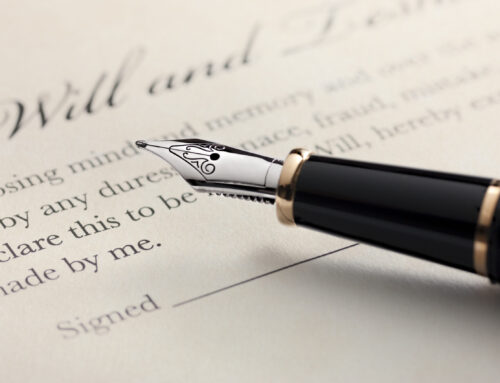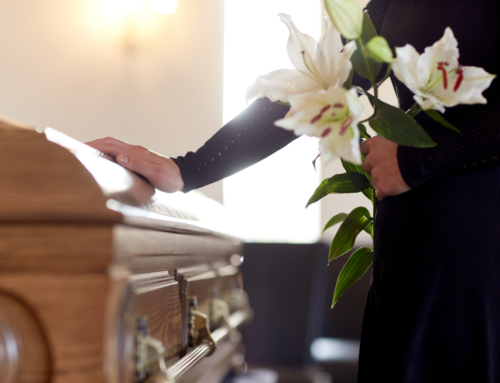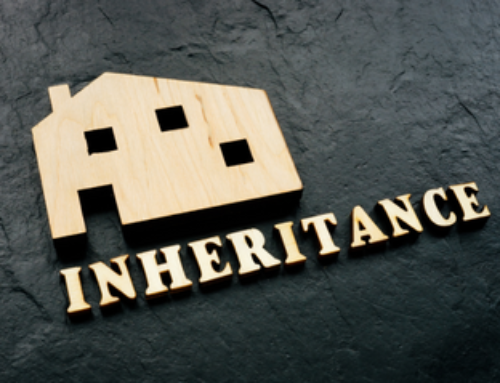Losing a loved one is always a challenging and emotional experience. And, unfortunately, it often comes with legal and financial considerations that can add additional stress to an already difficult time.
One common question that arises in estate planning is whether someone can insist that their home is sold after they die. Whether you’re a loved one of a person who has passed away, or you are concerned about what happens to your own property when you die, the information below notes the options available.
Ownership
Firstly, it’s important to understand the different types of property ownership. If the property is owned jointly with someone else, the surviving owner will automatically become the sole owner of the property. However, if the property is solely owned by the deceased, it will form part of their estate.
In short, you cannot insist that your property is sold
The short answer to this question is no, you cannot insist that your home is sold after you die. However, there are certain steps you can take to ensure that your wishes are respected when it comes to the sale of your property…
Ensuring you have a valid Will
Firstly, it is important to have a valid Will in place. This will allow you to specify what you would like to happen to your assets after you die. This can also include your property. In your Will you can specify that you wish to leave your property to a specific person or individuals. Or, you can direct that your property is sold and that the proceeds are distributed among your beneficiaries.
But if you do not have a Will, you property will be distributed according to the laws of intestacy. This route may mean that your wishes are not reflected as you would like.
It’s important to note that your Will is only effective if it is valid. To be valid, your Will must be in writing, signed by you in the presence of witnesses, and properly executed. It’s always best to consult with a solicitor when creating your will to ensure that it is legally sound and reflects your wishes.
Provisions in your Will
You can also include a provision in your Will that directs your executor to to sell your property. This action can be very useful if you have a large estate. This would then ensure that your beneficiaries receive their share of the assets as quickly as possible. However, it is important to note that your executor is not obliged to follow this instruction. They may not follow this because they believe it is not in the best interest of your beneficiaries.
Your Will should outline their wishes for your estate, including what you want to happen to your property. It’s important to note that if you don’t leave any specific instructions, the executor will have to use their discretion. If you’re the executor of someone’s will, it’s important to consider all factors before making a decision about the property. You should take into account any debts the deceased had, as well as the wishes of any beneficiaries. It’s also worth considering the condition of the property and whether it would be more beneficial to sell it or keep it.
Creating a Trust
Another option for increasing the likelihood that your wishes are followed and that your property is sold following your death is to create a trust. A trust is a legal arrangement whereby you transfer ownership of your property to a trustee. This person then manages it for the benefit of your beneficiaries.
You can specify the terms of the trust in your Will. Including how and when the property is to be sold. This can be particularly useful if you have concerns about your beneficiaries’ ability to manage their inheritance or if you want to ensure that your property is used for a specific purpose.
Gifting
It is also worth considering whether you would like to make any gifts of your property during your lifetime. You can give your property away outright, or you can transfer it into a trust. However, it is important to be aware of the potential tax implications of making such gifts, as well as the risk that you may need to sell your property to fund your own care in the future.
Debts
It’s also worth noting that if the deceased had outstanding debts, these will need to be paid off before any beneficiaries can receive their inheritance. If the value of the estate, including the property, isn’t enough to cover the debts, the property may need to be sold to pay them off.
Contact Us
If you’d like to speak to a Wills & Probate expert here at Beeston Shenton regarding your estate and what will happen to this when you die, please get in touch. Call us on 01782 662424 or email us at info@beestonshenton.co.uk




